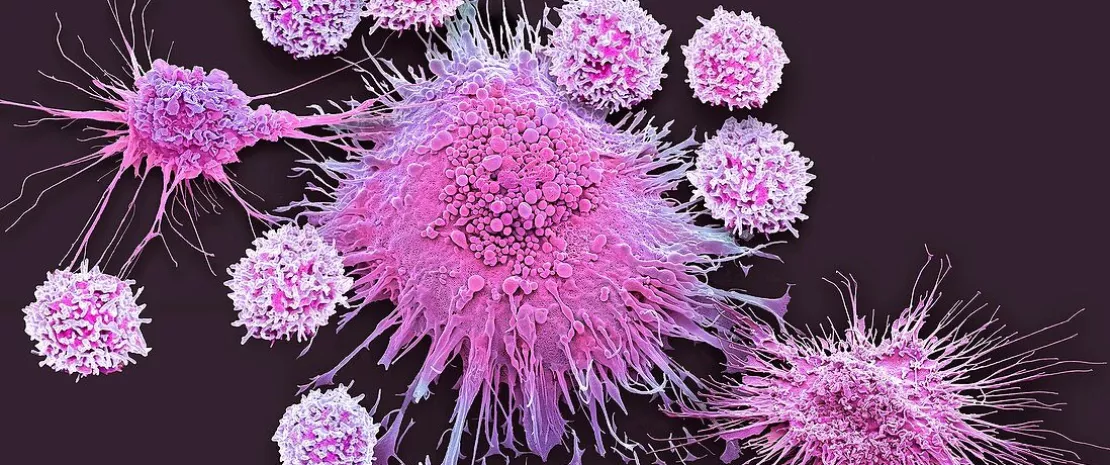Vaginal lactobacilli's anti-inflammatory superpowers
What if the secret to controlling vaginal inflammation lies within the microbiome? New research reveals Lactobacillus crispatus produces β-carboline compounds that selectively suppress inflammation while preserving immunity, opening doors to novel therapies.
Lay public section
Find here your dedicated section
Sources
This article is based on scientific information

About this article
Author
A healthy vaginal microbiome, typically dominated by (sidenote: Lactobacillus A group of beneficial bacteria commonly found in the vaginal microbiome. They produce lactic acid, helping maintain a low pH to protect against infections. ) species, is central to gynecological health. Yet, the mechanisms through which these microbes modulate inflammation have long eluded researchers. A new study 1 led by Virginia J. Glick, published in Cell Host & Microbe, unveils that certain strains of Lactobacillus crispatus produce β-carboline alkaloids - small molecules that exhibit targeted anti-inflammatory properties.
This discovery offers a fresh perspective on how these bacteria contribute to immune homeostasis and sets the stage for potential therapeutic applications.
77% BC6 perlolyrine cut inflammatory signals by 77% and restored immune cell activity to normal.
β-carbolines: Precision immunomodulators
The study identified β-carboline compounds, including (sidenote: Perlolyrine (BC6) A potent β-carboline compound identified in Lactobacillus crispatus that reduces inflammation while preserving immune defense. ) , as potent suppressors of inflammatory signaling. Using a dual reporter system in human monocyte-derived THP1 cells, researchers demonstrated that L. crispatus-derived β-carbolines inhibited NF-kB and type I (sidenote: Interferon (IFN) Signaling A key immune pathway that fights infections but can drive inflammation when overactive. ) (IFNAR) pathways. These molecules uniquely suppressed pro-inflammatory cytokine production in immune cells while leaving antiviral responses intact in epithelial and barrier cells - a level of selectivity rare among anti-inflammatory agents.
Notably, this is the first time that β-carboline, previously linked to plants and soil microbes, have been identified as products of vaginal Lactobacillus strains. Their discovery highlights a new dimension in microbiota-host interactions. Furthermore, cervicovaginal lavage samples from individuals with healthy vaginal microbiomes (low (sidenote: Nugent score A diagnostic scoring system used to assess bacterial vaginosis based on the presence and proportions of certain bacteria in a Gram-stained vaginal sample. ) ) were significantly enriched with β-carboline compared to those with (sidenote: Bacterial vaginosis Bacterial vaginosis (BV) is a type of vaginal inflammation caused by an imbalance of the bacterial species that are normally present in the vagina. ) (high Nugent scores), underscoring their potential as biomarkers for microbiome health.
New insights into vaginal microbiome dynamics: a game changer for women’s health
Translating science into therapeutics
To explore the clinical relevance of these compounds, researchers applied BC6 topically in a mouse model of vaginal inflammation induced by herpes simplex virus-2 (HSV-2). The results were striking:
- BC6 significantly reduced inflammation
- Dampened pro-inflammatory cytokines like IL-1β and IL-18
- And improved disease scores without affecting viral titers
The treatment maintained innate immune cell populations while decreasing the inflammatory signaling driving tissue damage.
Even more intriguing, some mice pre-treated with L. crispatus supernatant remained asymptomatic despite similar viral burdens as untreated controls. This suggests a role for these compounds in enhancing disease tolerance - a concept gaining traction in immunological research.
What this means for clinical practice?
The findings offer several critical insights. First, the study highlights the functional role of Lactobacillus crispatus in immune modulation, moving beyond its lactic acid production. Second, the specificity of β-carboline to suppress inflammatory pathways in immune cells without impairing barrier defenses provides a targeted approach to managing vaginal inflammation.
This research also paves the way for microbiome-based therapies, particularly in treating inflammatory disorders like bacterial vaginosis and vaginitis. Topical applications of β-carboline, such as perlolyrine, could offer a natural, precise alternative to broad-spectrum anti-inflammatory drugs, minimizing side effects and preserving immune functions.








